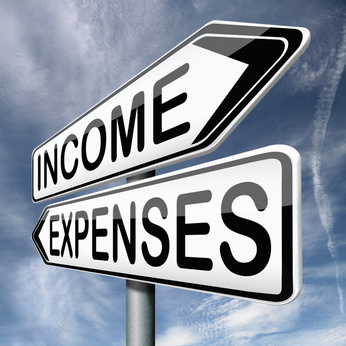It’s only natural to ask if creditors will take every penny of disposable income if we find ourselves in an IVA and leave us nothing for discretionary spending, for emergencies or for ‘rainy day’ events. The answer, in a nutshell, is no.
You will be allowed to retain a certain amount of money where you control what you do with it.
The Income & Expenditure Statement (I&E) laid out in your IVA proposal and approved (albeit with modifications) by your creditors should include a reasonable amount set aside for emergencies or contingencies. If you are single with no family commitments then the amount will be smaller than where you have a spouse or partner or dependent children – in such a case an I&E Statement records family income and family expenditure. How much is a reasonable amount? One yardstick used is that the family I&E should allow a single debtor to retain a contingency amount of £15 per month, a couple £30 per month and each child £12 per month. While these amounts may seem small, creditors may consider them to be too generous and may seek to reduce them somewhat. In the end however, you will have control over a certain amount of your disposable income and can retain that amount each month.

It is essential to ensure that all sources of income and all family expenses are listed on your I&E Statement. When the IVA is approved it is too late if a certain recurrent expense item has been overlooked. It is the responsibility of you the debtor to ensure that this does not happen and to make sure that the insolvency practitioner who is acting as nominee includes all reasonable expenses in the I&E statement of your IVA proposal.
It is obviously essential that all sources of income are included: wages, salaries, housing benefits, child benefit, tax credits, pensions, dividends and interest earned on savings accounts, lodger rental or other income from letting property and so on. Household or family income should include the income of both partners and the contributions of any non-dependent children to the household budget. Income should be net of all taxes & national insurance deductions and any mandatory contributions to pension schemes, which should simply be noted.
Spending should include all reasonable living expenses. Start with the ‘must pay’ bills such as mortgage or rent or cost of lodgings and car HP. Next summarize all food and housekeeping expenses for the family and the cost of utilities such as water, gas and electricity.
Then list all the normal items of expenditure one by one: council tax, water rates, telephone, mobile, internet, sky, TV license, life and property insurances, vehicle costs (fuel, parking, car insurance, car tax, repairs & servicing), medical optical & dental costs, clothing & footwear, costs incurred by children (school meals, school trips and activities, sports & hobbies, pocket money, transport), laundry & dry cleaning, hairdressing, newspapers & magazines. If you have a pet you must allow for insurance & upkeep. If you smoke than unless you are sure you are giving up the habit this expenditure must be listed. Modest contributions to church or charity should be included if applicable. Any special unavoidable expenses (e.g. special diet for a family member) should be included. Last but not least, an appropriate amount is included for sundries, contingencies & emergencies.